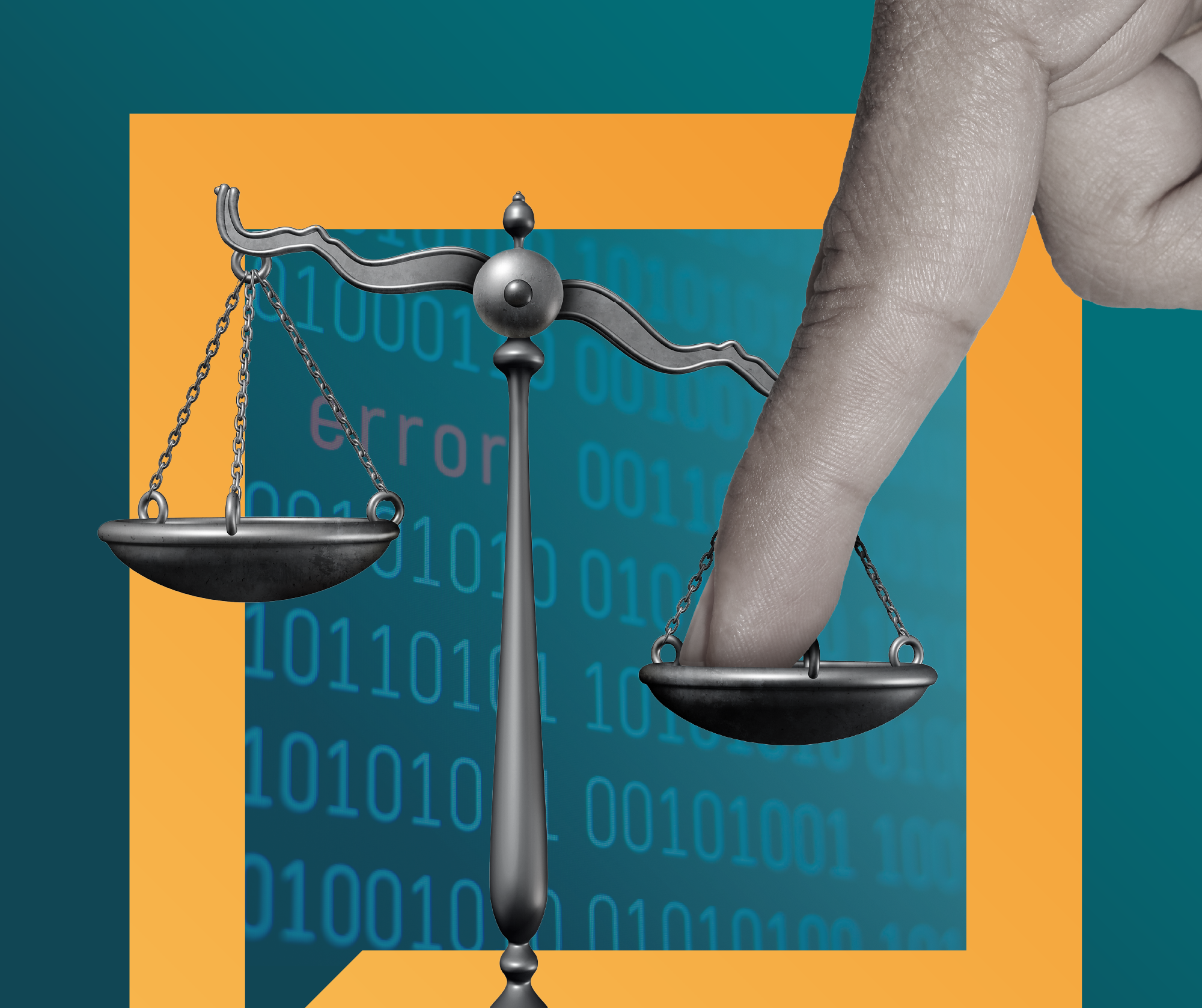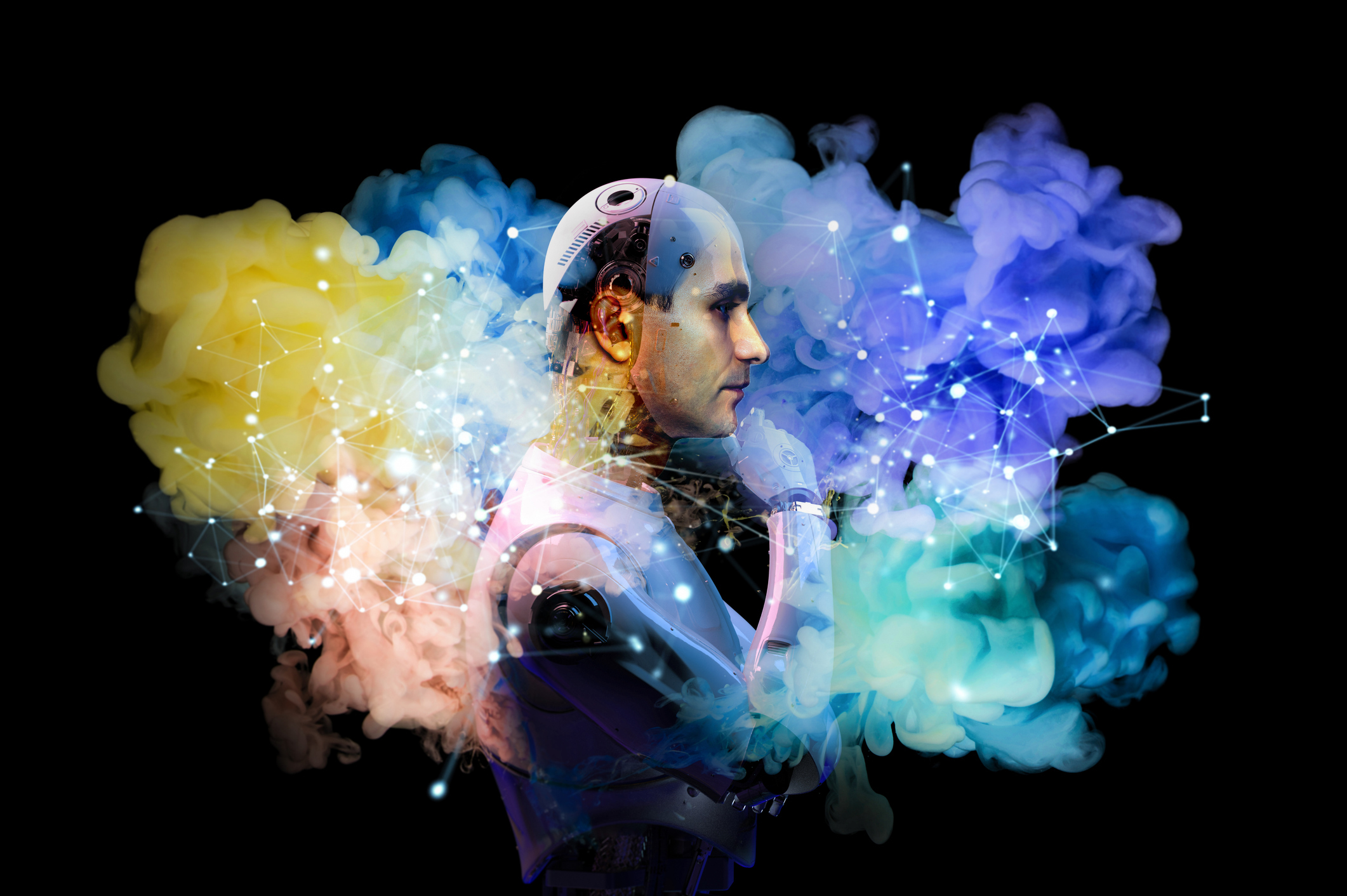
On Culture / Apr 17, 2024
AI Overlords or Dwayne “The Rock” Johnson? Envisioning America’s Future

What is your vision of a better future? What might our country look like in 2050 if things go as well as they possibly could?
In January, we asked focus group participants to paint us an optimistic picture of what could happen in the United States between now and 2050. One theme that emerged clearly from responses was that someone—or something—must come along to “save us” and fix our society.
Here are two ways that thinking has shown up:
1. In several of our focus groups, participants envisioned a future where artificial intelligence (AI) solves human problems.
“As time goes on, people are starting to realize that less government involvement is needed—as well as corporation involvement—with the emergent technology and AI. [In this imagined future,] science people decided to come together and use these tools for their benefit. Voting was soon abolished… and people were becoming more and more inclusive with their close-knit communities. And we start to rely more on each other.”
Latino man, age 49, leans Republican
“In 2050, technology will be everything for us and will do everything for us, like the Jetsons.”
Black woman, age 30, Republican
In this version of America’s future, people think about AI as having agency—being able to do things fully autonomously and serving as a replacement for human beings. We’ve also seen this sort of thinking in our research on how people think about AI. A few years ago, however, thinking about AI replacing humans was largely negative, drawing on sci-fi-like scenarios of robots taking over the world. It’s notable that people are now talking about AI in a positive, even utopian light—and are even talking in glowing terms about a future in which humans have willingly given their decision-making power over to AI and submitted to a form of technological authoritarianism.
Misunderstandings of what AI is and what it does have been a major obstacle to productive public understanding of AI—and now, it seems, productive visions of our shared future. Later this year, we will be releasing a comprehensive set of communications strategies for reframing the social implications of AI to help build a stronger public understanding. (Make sure you’re subscribed to updates from the Culture Change Project if you’d like to stay up to date on that research!)
2. Focus group participants across political lines suggested that a strong leader is crucial in uniting the country and healing our divisions.
“It seems like we lack leaders in both parties who have character and who are well respected. Maybe we need such a leader, somebody that rises above the normal politics, and who’s a positive person, and that people can get behind. And maybe that would make a difference.”
White man, age 63, Republican
“We the people, we’re going to elect The Rock to the office [of president]. He is very well liked by the majority of the nation. And he’s going to help mend the social divide, and all by the [pause]… you know, mental and physical muscle.”
Latino man, age 28, Democrat
Americans’ yearning for a single strong leader to solve our country’s problems is a worrying manifestation of the threat of authoritarianism. It is related to a person-centric mindset of government, in which government is equated with the individual leaders in charge, completely obscuring the role of institutions and systems.
But the search for a charismatic leader to save us and fix our problems—just like the turn to tech—is a symptom of something deeper. People know that our society is dealing with major problems that require big fixes, but have a hard time recognizing the systems and institutions that perpetrate these problems or the structural changes needed to fix them. That disconnect between knowing the scope of our problems but not knowing what causes them or what can fix them drives people to solutions that involve handing power over to an outside actor who can come in and change everything.
Those of us working toward systemic change must remember to highlight the role of institutions and systems in promoting or impeding our present and future wellbeing. It’s not that person-centered thinking is wrong, but it is certainly incomplete—and right now it’s a common way of thinking that really limits our understanding of the issues facing our society. By explaining how political institutions work and illustrating the importance of structural change, we can paint a fuller picture of what it will take to get to a better future.
To hear about our new reframing research on AI as soon as it’s released, make sure you’re subscribed to the OnCulture newsletter.
Additional Resources
- To learn more about how people think about AI and what communicators can do to build public understanding, check out Communicating About the Social Implications of AI: A FrameWorks Strategic Brief
- To start having more productive conversations about democracy and democratic reform, check out Framing Democracy: A Quick-Start Guide
- To learn more about the person-centric mindset and other ways Americans think about government, check out By and For the People? Cultural Mindsets of Democracy and the US Political System
Issues: Artificial Intelligence
Countries: United States